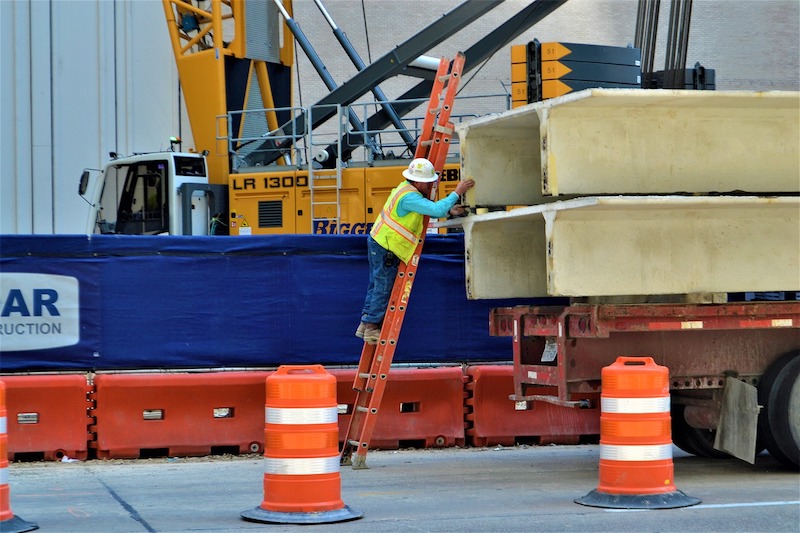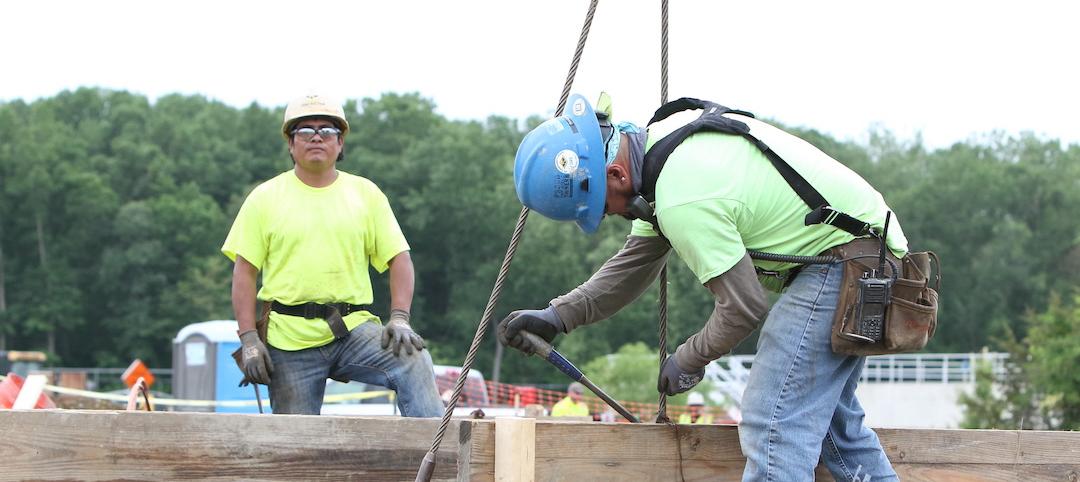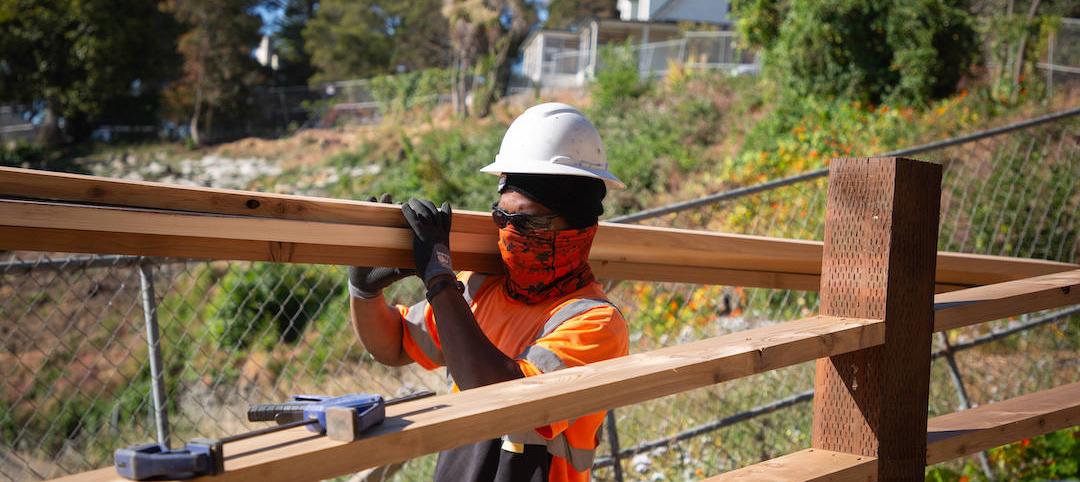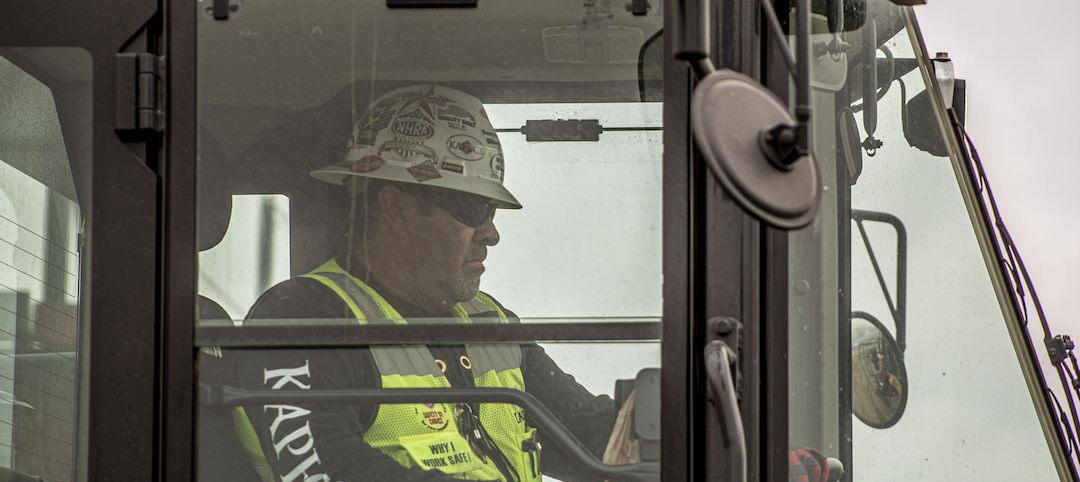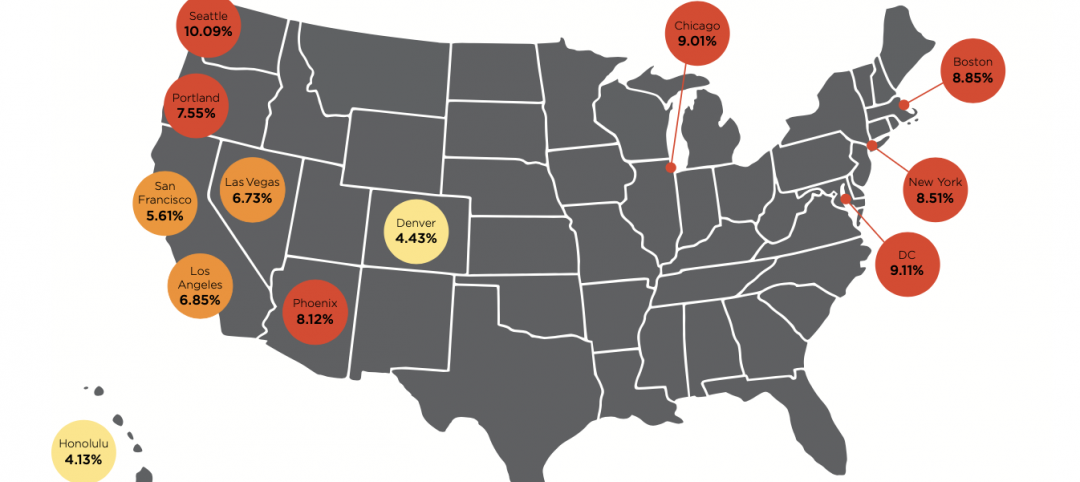Construction employment decreased from January 2020 to January 2021 in nearly two-thirds of the nation’s metro areas, according to an analysis by the Associated General Contractors of America of government employment data released today, as project cancellations and a lack of new orders have forced firms to reduce their headcount, the association’s latest contractor survey shows. Association officials said more layoffs are likely for the industry amid spiking materials prices and uncertain demand for new projects.
“More contractors are telling us they are cutting headcount than adding workers, which is consistent with the new data showing the industry is shrinking in many parts of the country,” said Ken Simonson, the association’s chief economist. “More than three-fourth of the firms said projects had been postponed or canceled, while only one out of five reported winning new work or an add-on to an existing project in the previous two months as a result of the pandemic. That imbalance makes further job losses likely in many metros.”
Construction employment fell in 225, or 63%, of 358 metro areas between January 2020 and January 2021. Industry employment was stagnant in 41 additional metro areas, while only 92 metro areas—26%—added construction jobs.
Houston-The Woodlands-Sugar Land, Texas lost the largest number of construction jobs over the 12-month period (-32,900 jobs, -14%), followed by New York City (-23,000 jobs, -15%); Midland, Texas (-11,100 jobs, -29%); and Chicago-Naperville-Arlington Heights, Ill. (-10,400 jobs, -9%). Lake Charles, La. had the largest percentage decline (-40%, -8,100 jobs), followed by Odessa, Texas (-37%, -7,600 jobs); Midland; and Laredo, Texas (-27%, -1,100 jobs).
Sacramento--Roseville--Arden-
Association officials are urging Congress and the Biden administration to work together to address rising materials prices, supply chain backups and invest in infrastructure. They are asking the administration to end tariffs on key construction materials, including steel and lumber, work with shippers to get deliveries back on track and pass the significant new infrastructure investments the president has promised.
“The construction industry won’t be able to fully recover and start adding jobs in significant numbers as long as materials prices continue to spike, deliveries remain unreliable and demand remains uncertain,” said Stephen E. Sandherr, the association’s chief executive officer. “Federal officials can’t fix every problem, but they can help by removing tariffs, helping hard-hit shippers and boosting investments in the nation’s infrastructure.”
View the metro employment 12-month data, rankings, top 10, multi-division metros. View AGC’s survey.
Related Stories
Market Data | Jan 31, 2022
Canada's hotel construction pipeline ends 2021 with 262 projects and 35,325 rooms
At the close of 2021, projects under construction stand at 62 projects/8,100 rooms.
Market Data | Jan 27, 2022
Record high counts for franchise companies in the early planning stage at the end of Q4'21
Through year-end 2021, Marriott, Hilton, and IHG branded hotels represented 585 new hotel openings with 73,415 rooms.
Market Data | Jan 27, 2022
Dallas leads as the top market by project count in the U.S. hotel construction pipeline at year-end 2021
The market with the greatest number of projects already in the ground, at the end of the fourth quarter, is New York with 90 projects/14,513 rooms.
Market Data | Jan 26, 2022
2022 construction forecast: Healthcare, retail, industrial sectors to lead ‘healthy rebound’ for nonresidential construction
A panel of construction industry economists forecasts 5.4 percent growth for the nonresidential building sector in 2022, and a 6.1 percent bump in 2023.
Market Data | Jan 24, 2022
U.S. hotel construction pipeline stands at 4,814 projects/581,953 rooms at year-end 2021
Projects scheduled to start construction in the next 12 months stand at 1,821 projects/210,890 rooms at the end of the fourth quarter.
Market Data | Jan 19, 2022
Architecture firms end 2021 on a strong note
December’s Architectural Billings Index (ABI) score of 52.0 was an increase from 51.0 in November.
Market Data | Jan 13, 2022
Materials prices soar 20% in 2021 despite moderating in December
Most contractors in association survey list costs as top concern in 2022.
Market Data | Jan 12, 2022
Construction firms forsee growing demand for most types of projects
Seventy-four percent of firms plan to hire in 2022 despite supply-chain and labor challenges.
Market Data | Jan 7, 2022
Construction adds 22,000 jobs in December
Jobless rate falls to 5% as ongoing nonresidential recovery offsets rare dip in residential total.
Market Data | Jan 6, 2022
Inflation tempers optimism about construction in North America
Rider Levett Bucknall’s latest report cites labor shortages and supply chain snags among causes for cost increases.


